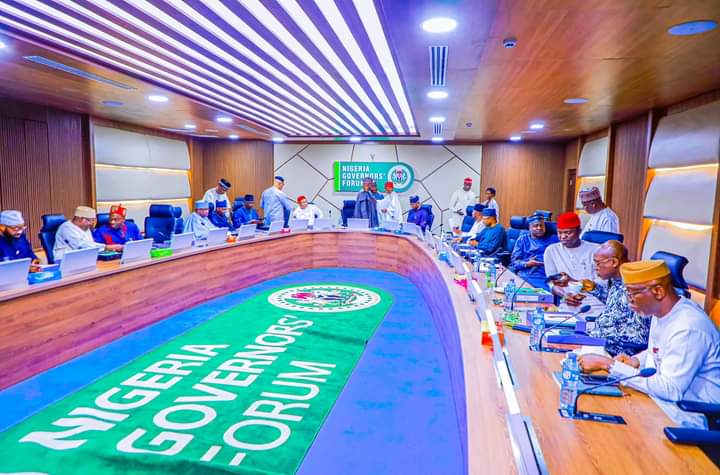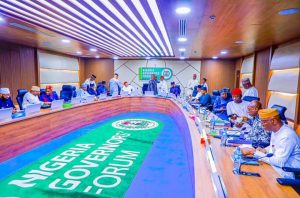
GOVERNORS, MONARCHS PUSH FOR TRADITIONAL RULERS’ INCLUSION IN NATIONAL SECURITY COUNCILS

As the National Assembly begins the review of the 1999 Constitution (as amended), the Nigeria Governors Forum (NGF) and the National Council of Traditional Rulers of Nigeria (NCTRN) are collaborating to grant formal recognition and responsibilities to traditional institutions.
The initiative aims to formally position traditional rulers as custodians of culture and history, as well as key advisors on customary law, community relations, and crucially, security and public order. It also seeks to integrate them more directly into the governance and administration of rural communities.
In a show of commitment to strengthening governance and community leadership amid the country’s security challenges, governors and traditional rulers met for over four hours yesterday at the Imo State Governor’s Lodge, Asokoro, Abuja.
The proposed constitutional amendment would formally integrate traditional institutions into Nigeria’s governance framework. The bill recognizes monarchs as crucial partners in governance, especially in matters of security and community cohesion.
Speaking to journalists after the meeting, Imo State Governor and Chairman of the NGF-NCTR Joint Committee, Senator Hope Uzodinma, said, “Last year, the Nigerian Governors Forum held a special meeting with the National Council of Traditional Rulers on the need to involve traditional rulers in the management and governance of our people at the rural level. We saw the constitutional amendment process as an opportunity to assign formal responsibilities to our traditional institutions.”
Senator Uzodinma, joined by Governors Babajide Sanwo-Olu (Lagos), Uba Sani (Kaduna), and Usman Dodo (Kogi), explained that a subcommittee consisting of members from both the NGF and NCTR was set up to explore ways to support the formal inclusion of traditional institutions in the new constitutional framework.
“We had a productive meeting where traditional rulers presented their proposals, which received near unanimous support. We will now take this report to the broader Nigerian Governors Forum for approval. Once adopted, we will engage the National Assembly to ensure the provisions are included in the constitutional amendments,” he said.
Uzodinma added that the country’s current security challenges necessitate stronger governance of ungoverned rural spaces, which can only be effectively achieved by involving traditional institutions.
“The kinetic security approach used by our security agencies needs to be complemented by the non-kinetic influence of traditional rulers. This partnership will create a win-win situation for enhanced security and governance,” he said.
In his welcome address, the Imo State Governor emphasized the importance of this meeting: “We gather at a time when Nigeria faces complex security challenges that have weakened community cohesion in some regions. Addressing these issues requires more than top-down interventions; it calls for robust, community-based solutions that leverage the unique authority and moral influence of our traditional rulers.”
He stressed that the constitutional amendment offers a unique chance to anchor traditional institutions firmly within Nigeria’s governance architecture. “The bill rightly acknowledges traditional rulers as custodians of culture and history and as essential advisors on customary law, inter-communal relations, security, and public order.”
Highlighting the local nature of crime and insecurity, the governor said, “Insurgency, banditry, communal violence, and misinformation all begin at the community level. Therefore, our response to insecurity must also begin at the grassroots. Traditional rulers are uniquely positioned to provide early warnings, foster reconciliation, and rally support for state interventions.”
Governors across Nigeria have consistently advocated a bottom-up approach to security, which includes stronger links between community leaders and formal security agencies, as well as the integration of traditional councils into local and state security frameworks.
“The inclusion of traditional rulers in State and National Security Councils is not merely symbolic; it is a strategic and overdue move,” he said.
He concluded by emphasizing the need to refine the institutional framework, clarify the relationship between traditional authorities and elected officials (especially at the local government level), and develop strategies for effective implementation of these changes.
